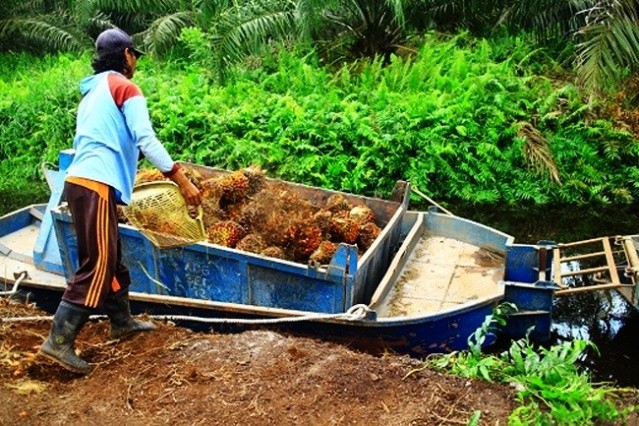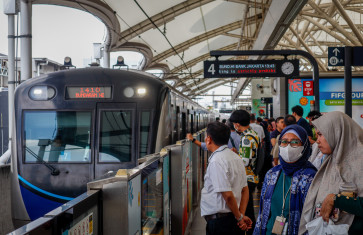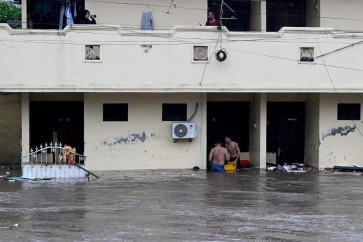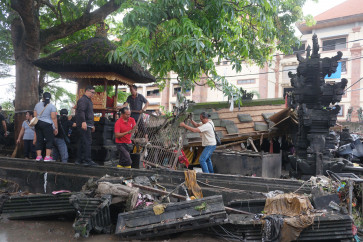Popular Reads
Top Results
Can't find what you're looking for?
View all search resultsPopular Reads
Top Results
Can't find what you're looking for?
View all search resultsIndonesians stay in Serawak despite problems
Some 350,000 Indonesians, more than half of them illegal workers, continue to live in the Malaysian state of Serawak even though they face various problems, including some that endanger their lives.
Change text size
Gift Premium Articles
to Anyone
S
ome 350,000 Indonesians, more than half of them illegal workers, continue to live in the Malaysian state of Serawak even though they face various problems, including some that endanger their lives.
The problems range from irksome ones like late payments to more serious problems like being killed either by wildlife or by other people, said Indonesian Consul General for Sarawak Jahar Gultom.
The Indonesian consulate general recorded that every year on average 200 Indonesian workers died in Sarawak.
"Cases of being eaten by crocodiles when examining a river, or working on disputed land and being killed by a party to the dispute have occurred more than once or twice," Jahar told thejakartapost.com.
Sarawak has 135 palm oil companies, and the workers are mostly Indonesians. Indonesians account for 80 to 90 percent Indonesians of the total workforce. It is unclear about the legality of Indonesian workers in these companies.
"Some arrive legally at the beginning, but due to the harsh treatment by the companies they move to other companies then they become illegal. Some are invited by their relatives or friends who are already working in Sarawak," Jahar explained.
Working illegally is easier, because there is no need to undergo processes such as ability tests or health checkups. the cost of getting a work permit is Rp 800,000 (US$ 59.57), this does not include wages cut by agencies to pay for their services. Agencies usually aim for Rp 3 million from each worker.
The minimum salary is RM 800 (around Rp 2.4 million), compared with Jakarta's minimum wage which is Rp 3.1 million, and in July 2016 will be increased to RM 900. However, performance-based workers like fruit collectors can receive up to RM 2,000 per month, based on how much fruit they collect.
The consulate has not renewed illegal workers' visas since December 2014. Instead it provides Passport-Like Travelling Letters (SPLP) that expire in two months, to make them go back to Indonesia and obtain documents needed to become legal workers again.
"In July 2015 an evaluation of the program showed it was not working well. Instead the workers went back to the companies telling them their licenses got renewed and after two months around 700 people went to the consulate asking to extend their SPLPs, while the document cannot be extended," Jahar said.
In 2016 the Sarawak consulate will adopt a different approach. It will stage the Indonesian Migrant Workers Awards with cash prizes for workers who perform the best.
The awards will take place in Kuching in April and are expected to be a biennial event. Hopefully the Indonesian workers will be motivated to perform better and especially get legal status. (bbn)
Your Opinion Matters
Share your experiences, suggestions, and any issues you've encountered on The Jakarta Post. We're here to listen.
Thank you
Thank you for sharing your thoughts. We appreciate your feedback.










